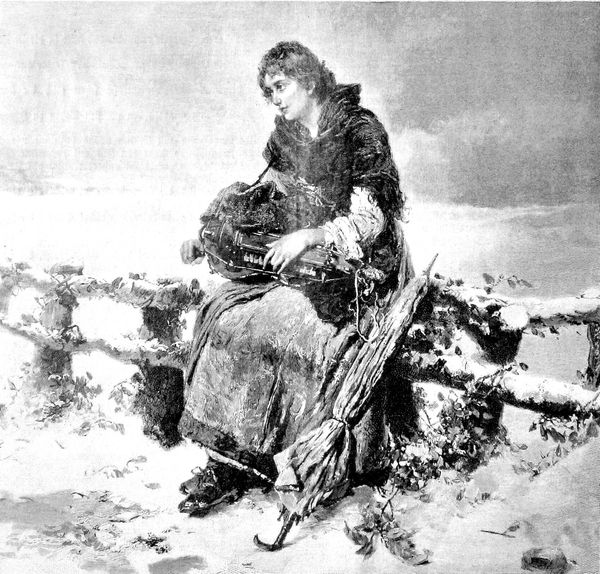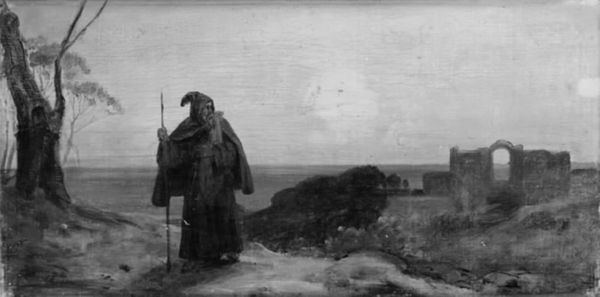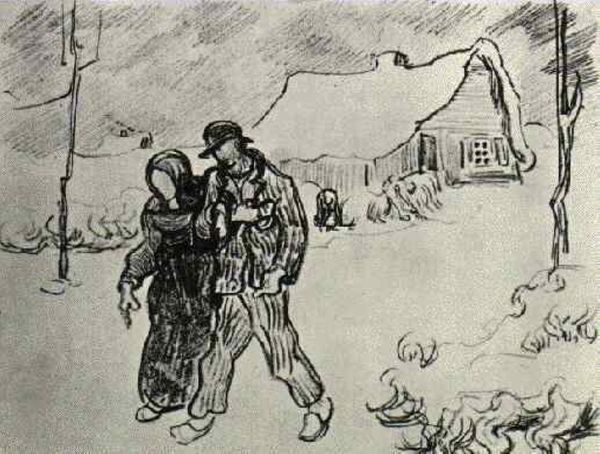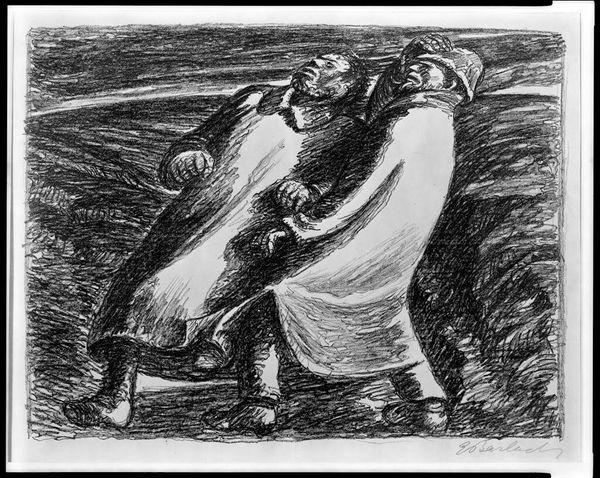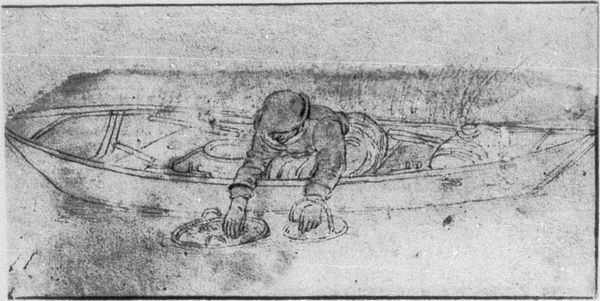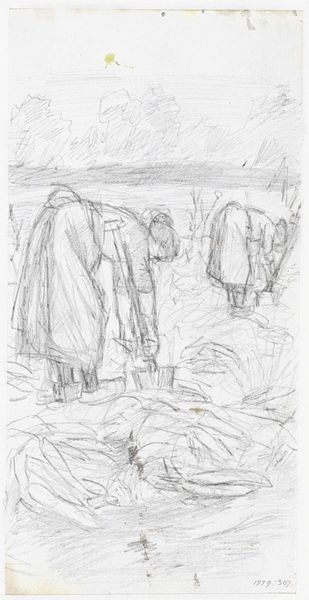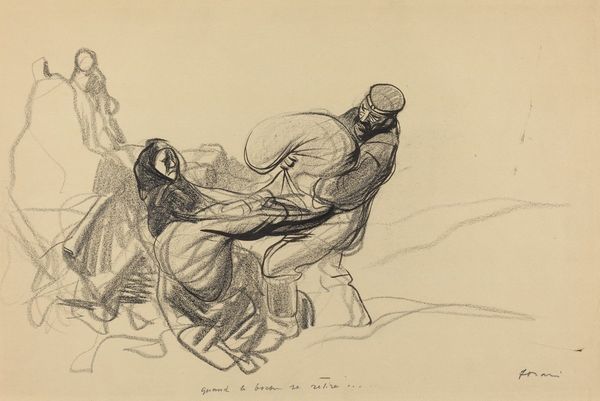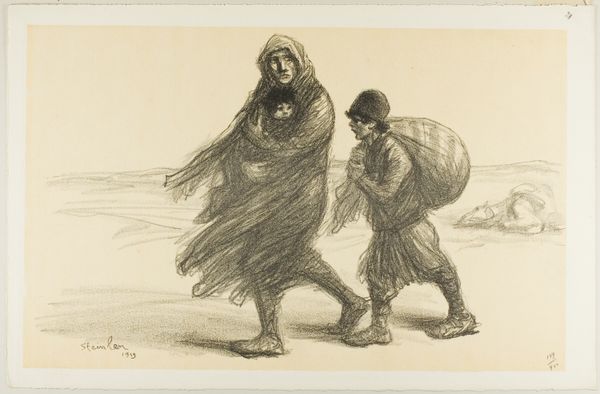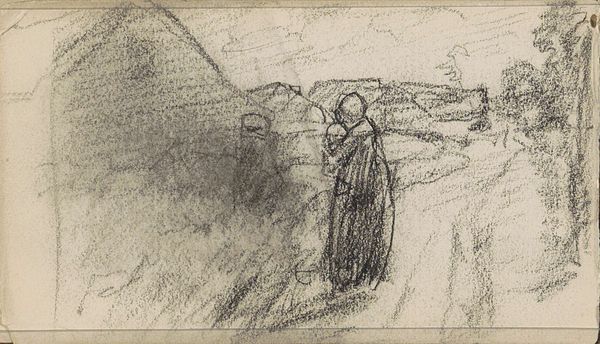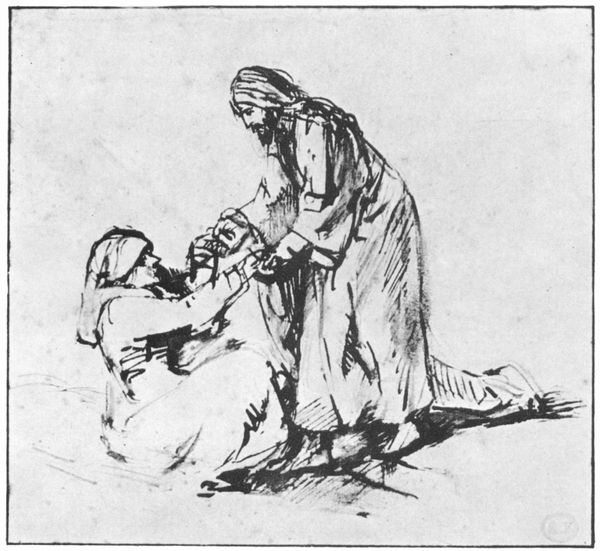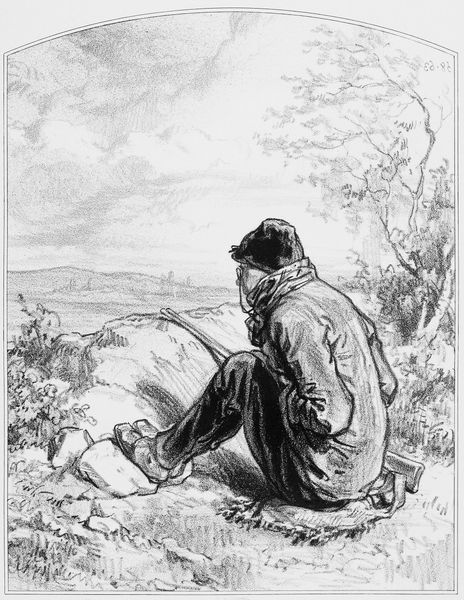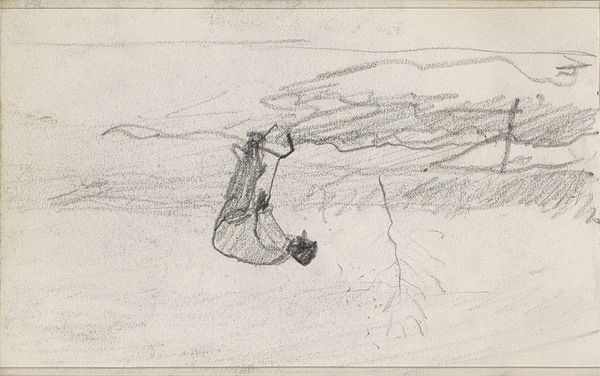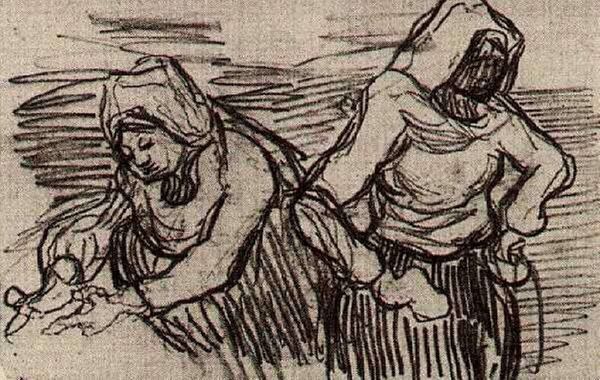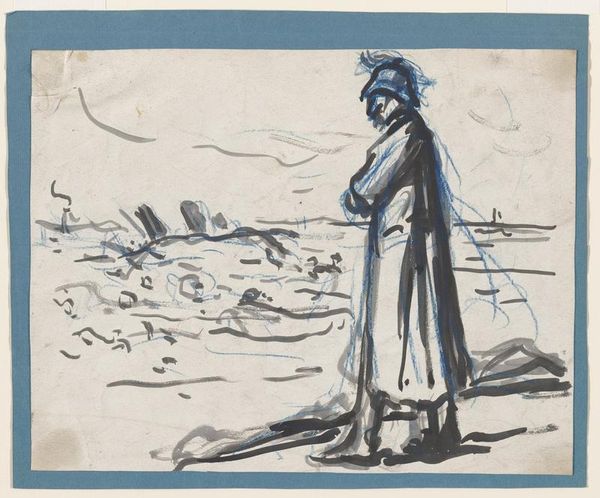
drawing, pencil, charcoal
#
drawing
#
impressionism
#
landscape
#
charcoal drawing
#
figuration
#
pencil drawing
#
pencil
#
charcoal
#
realism
Dimensions: 8 1/2 x 12 1/2 in. (21.6 x 31.8 cm)
Copyright: Public Domain
Curator: There's such a striking bleakness to this work, isn’t there? The charcoal gives it this immediate sense of solemnity, like looking at a fading memory. Editor: Indeed. What we're looking at is Winslow Homer's drawing "Fisherwomen," created around 1882. This charcoal and pencil piece offers a glimpse into the lives of working women, a common theme in Homer's art. Curator: The weight these women carry—both physically and metaphorically—is palpable. The heavy baskets, the weathered clothing, it all speaks volumes about their arduous lives, and the economic hardships placed on women of the era. Editor: Absolutely. Homer often depicted rural life and the relationship between people and nature. This piece certainly embodies that, focusing on the labour of women in coastal communities. Notice how they dominate the composition, figures walking out of shadow as opposed to lying flat under it in that beached vessel. It disrupts assumptions of gender, challenging notions of weakness or delicacy associated with femininity. Curator: I appreciate how he avoids idealization. It's not a romantic vision of womanhood, but a raw portrayal of their everyday struggles. I think viewers would've definitely considered Homer’s politics regarding representation. And how that, for many female observers especially, spoke of their value beyond aesthetic purposes. Editor: Homer was indeed challenging prevailing artistic conventions. He moved from his earlier idyllic genre scenes and illustrations toward a form of realism that reflected the growing social consciousness. Consider also the impact of Impressionism on Homer, this sketch is reminiscent of the kind of social landscape favored by the likes of Edgar Degas. He had adopted it, reappropriated, or been influenced in similar artistic directions. Curator: Looking at it now, there’s a modern aspect, one beyond Homer's place in a linear telling of the history of American Art, and it also has the ability to act as a mirror through which modern day audiences are asked to reflect and think more carefully about societal power dynamics. Editor: I concur. "Fisherwomen" serves as a potent reminder of the burdens disproportionately placed on marginalized people. Homer challenges the status quo by placing them at the heart of the image, thereby prompting reflection on our contemporary societal framework.
Comments
No comments
Be the first to comment and join the conversation on the ultimate creative platform.
